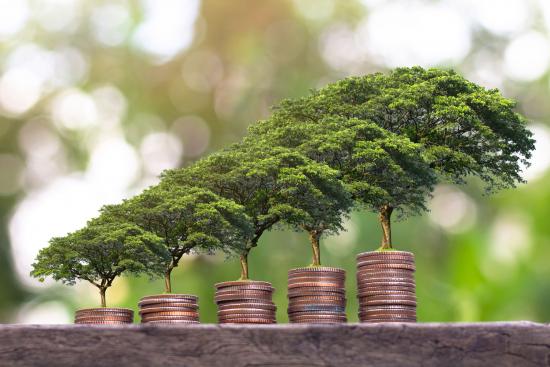Ghana’s government has issued an ambitious “climate budget” as demonstrated by the level of government commitment in the 2022 budget statement –This ambitious “climate budget” is set to drive towards a green transition, promoting sustainable growth, financial and fiscal stability, increased employment and reduced inequalities.
To achieve this, government intends in pursuing and implementing an aggressive afforestation programme; developing a proposal for the adoption of E-Mobility in the transport sector to address the high levels of Green House Gas (GHG) and air pollution; exploring alternative climate investment options to implement climate actions geared towards the achievement of the Ghana-Nationally Determined Contributions among others – The growing allocation towards sustainability in Budget 2022 reaffirms Ghana’s commitment toward a sustainable future.
Climate change and economic growth
Climate change is unequivocally impacting the growth and public finances of Ghana-This is through a combination of climate-induced disasters and more gradual trends toward higher temperatures, increased frequency of floods and droughts, and rising sea levels. Extreme climate-induced shocks (like floods, drought and storms) reduce economic output and slow GDP growth because of the short-term costs of disaster relief, longer-term costs of reconstruction, as well as forgone returns to damaged capital and dampened economic activity.
Push for ESG to attract investments
Addressing climate change must be a macro fiscal priority and must be integral in pursuing a transformative agenda which reiterates the critical need for public and private sector actors to equitably transition, in a just manner, from destructive extractive investments to environmentally and socially sustainable business models that restore and enhance natural climate solutions and build resilience at local levels with benefits for people and nature. With the global environmental, social and governance (ESG) push, Budget 2022 reinforces the need for Ghanaian companies and the local supply chain to prioritize ESG frameworks premised on higher value creation – This would also resonate with international investors who increasingly demand more robust ESG strategies, potentially attracting higher-value investments.
Structural measures to achieve green growth
Government needs to prioritize its development in line with sustainable Development Goals and the Paris Agreement based on the themes of Energy; Agriculture, Forestry, Land and Ecosystems; and Climate Finance by adopting the following measures:
- Establish a green framework that recognizes the drivers contributing to biodiversity loss as well as destruction of ecosystems and vital carbon sinks (e.g degradative or high-tillage agriculture, logging, fuelwood, land use change for energy or other purposes) before identifying the solutions it intends to invest in.
- Work with and involve the private sector to develop and commit to zero deforestation supply chains and policies that are beneficial land of mutual benefit to all stakeholders.
- Embed nature-based solutions into Ghana’s Budget cycle, the national development plans. Sustainable farming (agroecology, organic farming, etc.) and forestry practices must be implemented at the local and national levels by aligning national development plans, forestry, and agricultural policies with the Paris Agreement and Sustainable Development Goals.
- increase financing of nature and nature-based solutions, for protecting and restoring nature in its country strategies and action plans.
- Shift investment portfolios already connected to agriculture related investments to support 100% sustainable agricultural approaches like agroecology and other regenerative processes, which are to be included in the eligibility criteria for biodiversity and land degradation neutrality projects. Ghana’s climate finance portfolios must also support investments in nature-based solutions more suited to the geopolitical architecture of the country.
- Government must prohibit harmful financing to key critical ecosystems and areas, including those which are most at threat from harmful development projects, such as intact primary forests, free flowing rivers, habitats with endangered species, and areas which have not received the free, prior, informed consent of local and indigenous communities.
- Increase transparency about how funds and financing flow in and out for climate change related activities, develop accountability mechanisms that show how those funds reach communities, and provide timelines for when funding starts and ends.
Green growth is possible
Looking ahead, the global environment will be radically different in the next decade, government has to do more to substantially expand their resilience and ambition and leapfrog to an inclusive sustainable development. Setting an ambitious, yet realistic target as captured in the 2022 Budget will place Ghana in a unique position to influence other African countries to enhance their commitments on climate change.
Government will also need to clear some important hurdles that include maintaining international political support, securing sustainable funding, and the ability to demonstrate with clear evidence that green growth is possible and effective. The 2022 budget is a starting point to begin the shift from transition to transformation of the economy into green growth model and initiate the implementation of new Strategy towards agenda 2030.
The writer is the Coordinator, Project13
Project13 is a multidisciplinary network of researchers, private sector actors and policy makers promoting the generation, dissemination, use and mastery of science, technology and innovation for climate action.
Email: [email protected]










